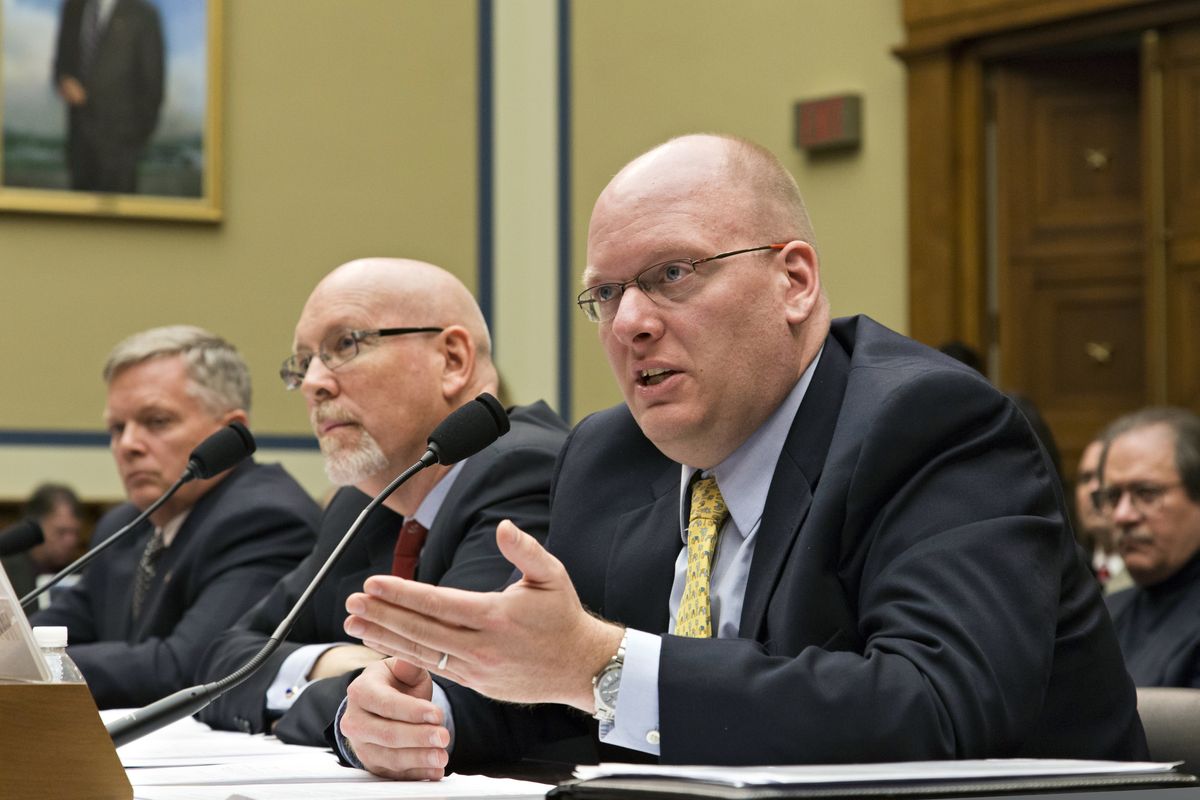Benghazi hearing opens with salvo
Witness details last phone call with Stevens

WASHINGTON – A much anticipated congressional hearing Wednesday on the September 2012 attacks on U.S. diplomatic compounds in Benghazi, Libya, produced no major revelations but plenty of partisan fireworks as Republicans renewed charges that the Obama administration had covered up details of what took place while Democrats retorted that politics is driving the GOP-run investigation.
Three State Department witnesses filled in some details of the U.S. response to the assault, with one, the former No. 2 U.S. diplomat in Libya, providing a dramatic, blow-by-blow account of how he and his colleagues in Tripoli responded to the attacks, which killed Ambassador Chris Stevens and three other Americans.
Gregory Hicks, the first U.S. official who was in Libya that night to testify in public, described a final, frantic phone call in which Stevens told him from a burning residential building in the Benghazi compound, “Greg, we’re under attack,” before the signal was cut.
His voice at times cracking, Hicks recounted how he learned from a top Libyan official that Stevens had died in the Sept. 11, 2012, assault by scores of armed Islamist militants. “It was the saddest phone call in my life,” he told rapt members of the House Oversight and Government Affairs Committee.
At another point as he coordinated the embassy’s response, Hicks received a call from then-Secretary of State Hillary Rodham Clinton.
Clinton “asked me what was going on, and I briefed her on developments,” he said. “Most of the conversation was about the search for Ambassador Stevens. It was also about what we were going to do with our personnel in Benghazi, and I told her that we would need to evacuate, and that was – she said that was the right thing to do.”
The hearing, however, failed to reveal any new proof of what Republicans charge was a bungled administration response to the attack, a cover-up of the roles played by senior Obama aides and a deliberate bid to “mislead” the public with an erroneous initial account blaming the assault on protesters enraged by a crude online anti-Islamic video, and not terrorism.
That account was provided on five Sunday television shows by Susan Rice, the U.S. ambassador to the United Nations. The U.S. intelligence community took responsibility for wanting a reference to al-Qaida dropped from talking points provided to Rice before the shows. But a Republican-authored report that was released last month claimed, based on a review of email traffic, that it was the State Department that objected to many of the details and drove their deletion.
Republicans on five House committees are coordinating an investigation of the attack. Minority Democrats say they’ve been excluded from the probes, whose primary target appears to be Clinton.
Rep. Darrell Issa, R-Calif., the committee chairman, opened the hearing by saying the goal was “to get answers because the families (of those killed) deserve answers.” He charged that the administration had refused to cooperate with requests for witnesses and documents and claimed that the panel’s minority Democrats “mostly sat silent.”
The committee’s top Democrat, Elijah Cummings of Maryland, issued a blistering statement, accusing Issa of staging a “media campaign that is not designed to investigate in a responsible and bipartisan way, but rather of unfounded accusations to smear public officials.”
Hicks repeated his assertion, made in earlier closed testimony to investigators, that a show-of-force flyover of Benghazi by a U.S. warplane might have dispersed the militants and averted the attack on the CIA annex.
He said that he’d learned from Libyans who participated in the anti-Moammar Gadhafi revolt that they were “very aware” of the role played in his defeat by U.S. and NATO airpower and that he believed the militants in Benghazi would “not stand by if they were aware that American aircraft were in the air.”
But Democrats, seeking to discredit his assertions, pointed out that former Defense Secretary Leon Panetta and Army Gen. Martin Dempsey, the chairman of the Joint Chiefs of Staff, told a Senate committee in February that U.S. aircraft in Italy couldn’t have been sent because there were no midair refueling tankers available.
Hicks also testified that a four-member U.S. Special Forces unit that was in Tripoli training Libyan security forces had planned to fly to Benghazi hours after the attack on a Libyan transport plane to join a team of U.S. security personnel that already had arrived in the city. But he said the squad was denied permission to go as it was preparing to leave for the airport.
He acknowledged, however, that that second unit wouldn’t have arrived in Benghazi until around 7:30 a.m., by which time the surviving U.S. personnel were at the airport awaiting an evacuation flight back to Tripoli.